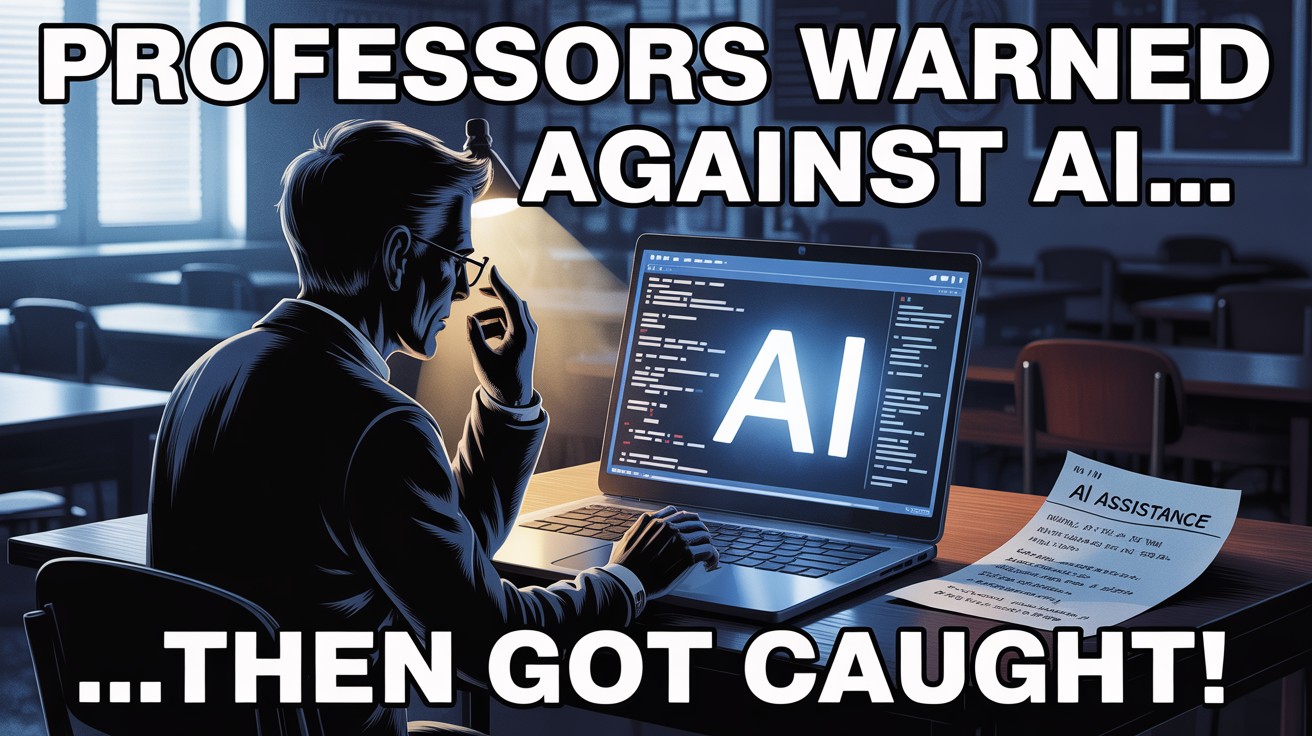Ella Stapleton, a determined senior at Northeastern University, was on a mission to excel in her business class. But what she stumbled upon in her professor’s lecture notes left her speechless.
Tucked away in the bibliography was a cryptic citation – “ChatGPT.”
The more she scrutinized the notes, the more she realized that her professor, Rick Arrowood, had been secretly harnessing the power of artificial intelligence to generate his teaching materials.
The AI Revelation
Stapleton’s eyes widened as she spotted telltale signs of AI generation: recurrent typos mirroring machine outputs and images depicting figures with extra limbs.
The hypocrisy stung. Her professor was warning students against using AI, yet he was using it himself. “He’s telling us not to use it, and then he’s using it himself,” Stapleton said in an interview, her voice laced with disappointment.
A Question of Integrity
The discovery sparked a fire within Stapleton. She lodged a formal complaint with Northeastern’s business school, focusing on Arrowood’s undisclosed use of AI and broader concerns about his teaching approach.
But that wasn’t all – she demanded a tuition refund for the course, amounting to just over $8,000. “I paid for a human expert, not a robot,” she seemed to imply.
A Demand for Refund
After a series of meetings, Northeastern ultimately decided to reject Stapleton’s claim. But the incident opened a Pandora’s box, highlighting growing student concerns over professors using AI.
Students argue that it undermines the fees they pay to be taught by human experts rather than technology they could access for free.
The University’s Response
In an unexpected twist, Professor Arrowood acknowledged using various AI tools, including ChatGPT, Perplexity AI search engine, and Gamma AI presentation generator.
“In hindsight…I wish I would have looked at it more closely,” he admitted, recognizing the need for transparency. “If my experience can be something people can learn from, then, OK, that’s my happy spot.”
Northeastern University’s stance on AI usage is clear. According to Renata Nyul, Vice President for Communications, “Northeastern embraces the use of artificial intelligence to enhance all aspects of its teaching, research, and operations.”
The university provides resources to support the appropriate use of AI and updates policies accordingly.
The AI Debate
The incident raises questions about the role of AI in education. While some institutions restrict AI use, others encourage it. Northeastern’s AI policy emphasizes attribution and accuracy when using AI-generated content.
As the debate rages on, students like Stapleton demand transparency and accountability from their professors.
Navigating the Future
In the end, Stapleton’s determination sparked a crucial conversation about AI in education. As universities navigate this new frontier, one thing is clear – students expect honesty and integrity from their educators.
The question remains: will institutions prioritize transparency and adapt to the changing landscape of education?
With the rise of AI, the relationship between students and professors is evolving. Some students are taking to sites like Rate My Professors to express their concerns about AI usage in the classroom. The tables have turned, and now students are demanding answers about the role of technology in their education.
As the conversation continues, it’s clear that AI will play a significant role in shaping the future of education.
But for now, students like Stapleton will keep pushing for transparency and accountability from their educators. The Northeastern incident serves as a catalyst for this important discussion, and it’s up to universities to listen and adapt.


